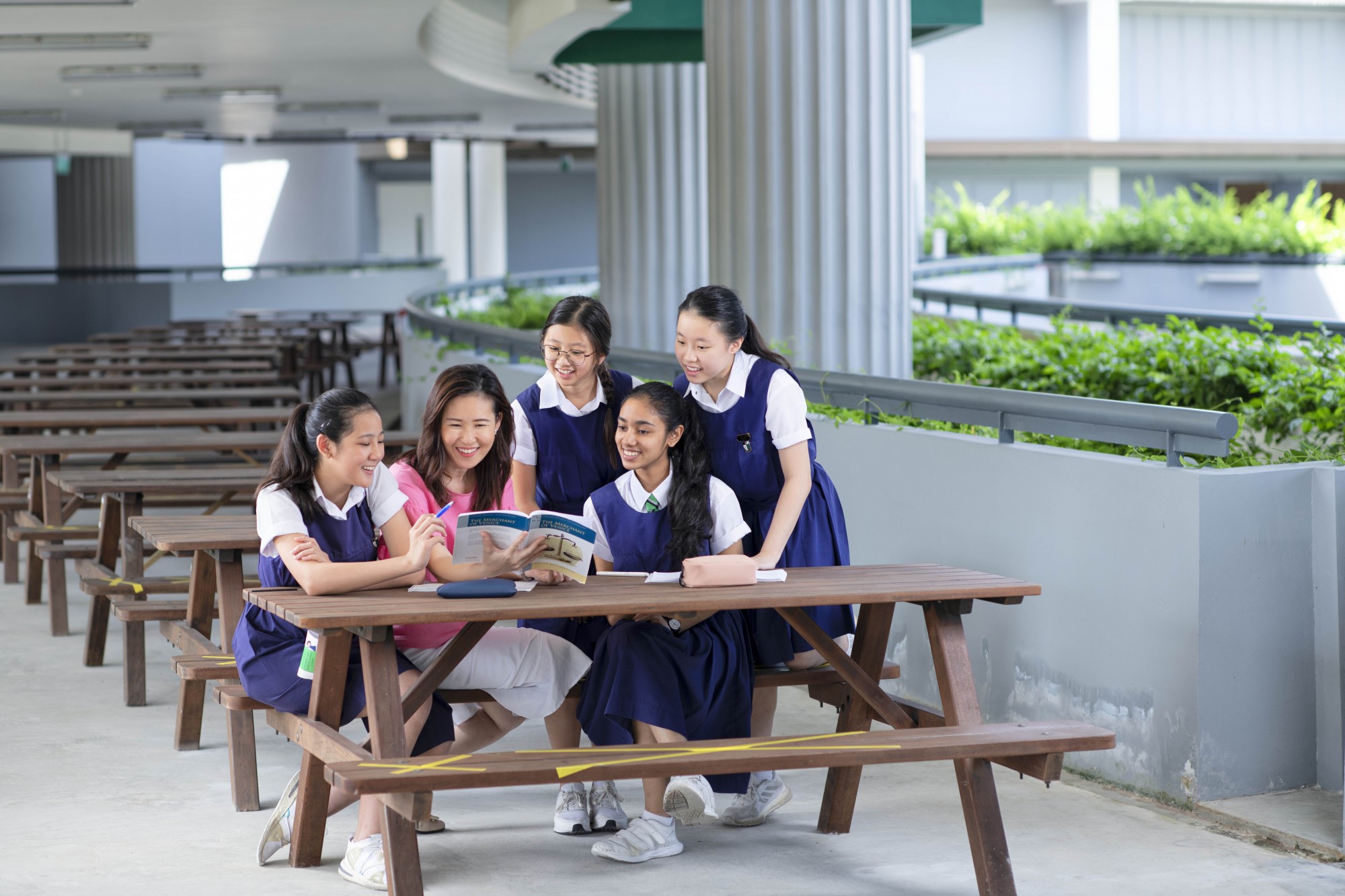Raffles Programme
Raffles Programme

The Raffles Programme is a seamless 6-year curriculum culminating in the Singapore-Cambridge General Certificate in Education (GCE) Advanced Level Examination. Students are expected to complete the full duration of the programme. Transfers to other schools, especially other IP institutions, are strongly discouraged and will only be considered under exceptional circumstances.
Building on the rich heritage and culture of excellence of Raffles Girls’ School and Raffles Institution, the programme provides a rigorous and enriched curriculum for highly-able students in Singapore. The Raffles Programme offers a broad-based curriculum, pathways for the development of special interests and strengths, and an emphasis on character and leadership development.
Our Mission
Nurturing the high ability girl to be a leader who will realise her talents in service of nation and community.
Goals
To develop fine character and well-being, nurture the intellect and fire the imagination of the RGS girl as a
- Person who is purposeful and aspires towards the greater good with integrity, empathy and resilience.
- Leader who values diversity, cohesiveness, and inclusiveness in exerting positive influence and impact on the community.
- Thinker who demonstrates a disposition for reflective and flexible thinking, and is willing to take intellectual risks, especially in the face of complex and ambiguous situations.
- Pioneer who seeks opportunities and embraces challenges with courage to innovate for the common good.
School Values
People-centred, Principled, Passionate, Professional
Our Curriculum Framework
The Raffles Programme is based on the principles of the Integrated Curriculum Model for gifted learners (Van Tassel-Baska, 1986). The curriculum challenges highly able students through the use of advanced content knowledge, high-order process and product work, and cross-disciplinary concept development.
Raffles Approaches to Foster Learning
The Raffles classroom fosters a passion for lifelong learning through the following approaches:
- Authentic: Draws on real-world knowledge of local and global contexts
- Learner-centred: Encourages active participation, exploration, discovery and collaboration among learners
- Process-focused: Emphasises ways of thinking and the development of disciplinary skills in the various fields
- Integrative: Builds on the inter-connectedness of ideas across disciplines
Assessment
Assessment modes are varied and emphasise content mastery and process skills. Continual assessment is a central feature of the assessment framework. Both assessment of learning and assessment for learning are emphasised. Assessment tools include:
- Standardised pen and paper tests
- Performance tasks and journals
- Portfolios
- Oral presentations
- Individual and group projects
Curriculum and Instructional Design Tools
The Integrated Curriculum Model (ICM) is an integrative approach of organising and differentiating the curriculum for gifted learners through three different dimensions:
- Advanced content
- Interdisciplinary concepts/themes/issues
- High level process-product development
It is designed to respond to the precocity, intensity and complexity that characterise highly able learners.
Understanding by Design (UBD) Framework by Grant Wiggins and Jay McTighe
Assessments are based on the desired learner outcomes (what we want students to know, understand and be able to do); they drive our instructional practices. This is consistent with the backward design process of the UBD framework that the school uses for the development of its lesson units in each discipline area. The framework helps focus curriculum and teaching on the development and deepening of student understanding using a three-stage design process: identifying desired results, determining evidence, planning learning experiences and instruction.
Curriculum Differentiation
Teachers harness multiple instructional strategies to facilitate higher order thinking and research skills. These include Richard Paul’s Elements of Reasoning in the Humanities, Problem Posing in Mathematics and Team-Based learning in Science. Teachers also use Learning Centres, Concept Development approaches and Collaborative Learning to enrich the learning experience. At all times, the teacher facilitates, steers and deepens learning through questioning, explanation, and clear feedback. Responding to the needs of all learners, we differentiate the way we learn and teach so that students learn based on their readiness, interest and learning profile.
[Carol Ann Tomlinson]

